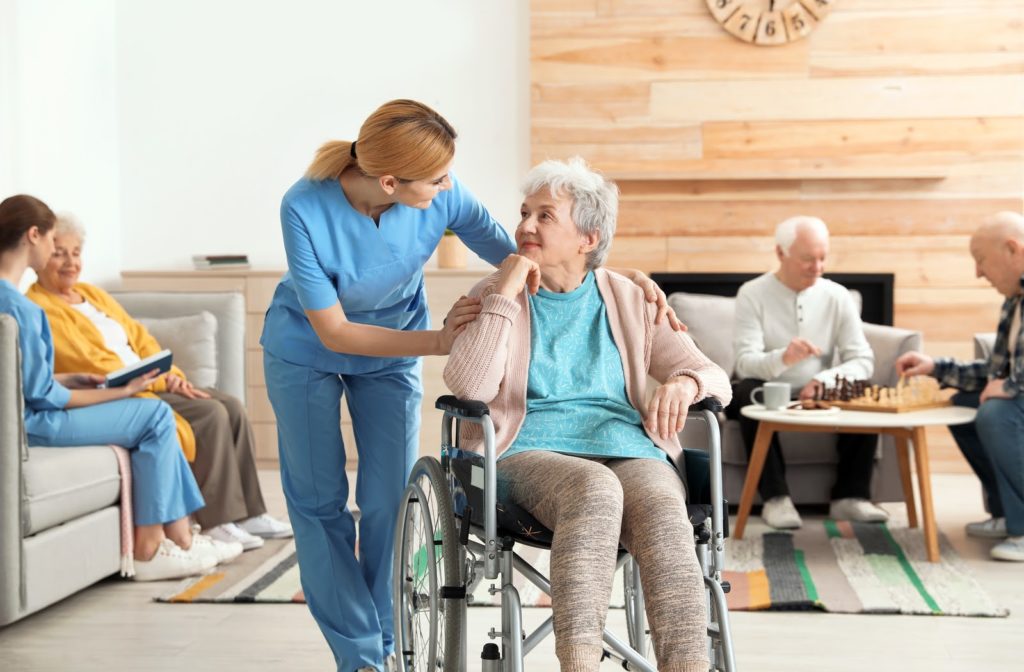Learn about innovative Memory Care techniques for cognitive well-being.
The Relevance of a Comprehensive Program of Treatment in Assisted Living Settings
In aided living settings, the implementation of a detailed program of treatment is necessary for dealing with the multifaceted requirements of locals. By prioritizing individualized care strategies and entailing family members in the procedure, these programs can dramatically boost health and wellness outcomes and quality of life.
Comprehending Comprehensive Care Programs
As assisted living facilities remain to advance, recognizing thorough treatment programs becomes crucial for both locals and their households. Comprehensive treatment programs are created to resolve a vast variety of requirements for individuals staying in assisted living environments, making certain that each resident gets customized support that reflects their unique health and wellness problems and lifestyle preferences.

Family members play an indispensable duty in this process, participating in care planning and continuous discussions to make certain that the citizen's needs are continuously met. Comprehending these programs is essential for making informed decisions regarding treatment alternatives and making the most of the high quality of life for citizens in assisted living centers.
Benefits for Homeowners

(Dementia Care Charlotte)One primary benefit of extensive treatment is the improvement in health outcomes. Regular surveillance and worked with healthcare aid in the very early detection and administration of persistent conditions, lowering hospital stays and emergency interventions. Homeowners benefit from enhanced social interaction, as structured activities and programs promote a sense of community, dealing with sensations of isolation and loneliness.
Furthermore, locals experience raised tranquility of mind, understanding that specialist assistance is readily offered should they require help. This guarantee allows them to concentrate on enjoying their everyday tasks and preserving purposeful partnerships.
Function of Caregivers
Caretakers play a pivotal role in the health of locals in assisted living centers, making sure that their demands are consulted with empathy and proficiency. They offer as the primary point of get in touch with for homeowners, offering necessary assistance in daily tasks such as showering, dressing, and medication administration. Their visibility not just promotes physical health and wellness however likewise boosts emotional and social health by cultivating relationships developed on trust and understanding.
In enhancement to sustaining daily living jobs, caretakers contribute in monitoring adjustments in locals' health and wellness and actions. They are educated to identify refined indications of distress or decline, enabling timely treatments that can avoid complications. Their understanding of each resident's distinct history and preferences enables them to provide personalized check here care, boosting the general high quality of life.
Additionally, caretakers work as supporters for residents, interacting their needs and choices to other health care professionals and family participants. This campaigning for is vital in developing an all natural care atmosphere that values the dignity and freedom of each person. Ultimately, the devotion and ability of caregivers are essential elements of a detailed program of care, underpinning the success of assisted living settings.
Customizing Treatment Program
While every local in assisted living has unique demands and preferences, personalizing treatment plans is important to providing effective and customized support. A one-size-fits-all strategy to care can neglect critical aspects of specific health, possibly resulting in suboptimal outcomes. Assisted Living. An extensive evaluation of each resident's health status, personal background, and lifestyle options is paramount in creating customized care techniques.
The personalization process involves partnership among healthcare professionals, caretakers, and relative. By including input from all stakeholders, treatment plans can attend to not only clinical demands but also psychological and social elements that add to general lifestyle. Regular evaluations and updates to these strategies make certain that they continue to be relevant as residents' problems and preferences advance over time.
(Dementia Care Charlotte)In addition, tailored treatment strategies promote a sense of self-respect and freedom among citizens, cultivating a setting where they feel valued and respected. This personalized technique not just enhances the effectiveness of care but also enhances the partnership between caretakers and locals, developing a helpful area atmosphere. Inevitably, investing in personalized treatment preparation is a keystone of supplying top notch assisted living services that meet the diverse demands of residents.
Enhancing Area Interaction
Building on the foundation of personalized care plans, improving area engagement is a vital aspect of enhancing the general experience for citizens in assisted living (Assisted Living). Energetic involvement in neighborhood tasks promotes social connections, battles feelings of isolation, and adds to emotional health. Helping with possibilities for citizens to take part in group tasks, such as art classes, gardening, and exercise sessions, creates a comprehensive environment that promotes interaction and cooperation
Moreover, integrating homeowners right into the wider community through partnerships with neighborhood organizations can give improving experiences, such as volunteering and participating in social events. This not only helps citizens really feel valued however also reinforces ties with the surrounding area, improving their sense of belonging.
Additionally, urging family participation in community tasks is crucial. Memory Care. Relative can work as important support systems, helping to bridge the space in between citizens and the neighborhood. Regular family occasions and open discussion forums for conversation foster transparency and collaboration, guaranteeing that the treatment setting remains receptive to the demands of all stakeholders
Verdict
Finally, detailed treatment programs in assisted living settings play an important duty in enhancing residents' well-being. By attending to medical, emotional, and social demands, these programs not just improve lifestyle but also advertise very early discovery of wellness concerns, lowering the chance of hospital stays. The participation of family members in treatment planning enhances assistance networks, cultivating a sensible and independent living atmosphere. Eventually, such programs add significantly to the general health results and contentment of citizens.